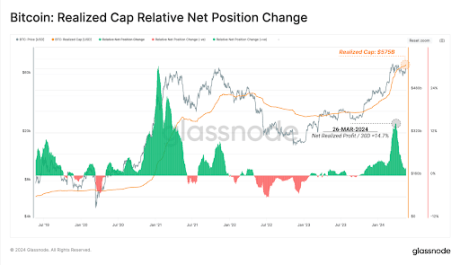Russian Officials Will Rate Anime, Porn, Gaming and Bitcoin
June 7, 2019 by Jeff Fawkes
It’s not only American values and European sexual traditions that fall foul of the Russian government’s heavily restrictive internet content policy. While it’s often used as an excuse, government rules on objectionable content are used to block any websites it can’t control.
Also read: Bitcoin Price Topped $9000, Could Activate a New Resistance at $10K
Subscribe to the Bitsonline YouTube channel for great videos featuring industry insiders & experts
Columbine Violence, Computer Games And War
High officials insist that violence in computer games influences dangerous behavior among teens. After the Columbine High and recent Crimean college shooting cases, deputies said that games should receive a violence check before they get a distribution license for Russian territory.
Deputies Elena Mizulina (famous for Orwellian quotes), Ludmila Bokova (co-author of the Sovereign Runet law) and Alexander Bashkin have filed a censorship request to the Gosduma. In terms of the document, they listed reasons to set a new order for a system of classification and distribution of computer and video games in Russia.
Per Ludmila Bokova:
“Today, the distribution of video-games is not properly regulated. The children have no protection from the demonstration of numerous acts of violence, present in video and computer games, including the online ones.”
According to Bokova’s notion, the new draft bill will “enhance the protection of children from dangerous content and harmful information”, by enabling something similar to the ESRB rating system, but with a different attitude. She also noted that “the document appeared as a result of massive shootings, explosions, arson attacks that were performed in educational entities.”
In December 2018, Russian president Vladimir Putin signed a law mentioning “Columbine blocks”, which have added some new points to the list of restricted information.
Moscow Сity Court Has Blocked 11 Big Anime Sites … Just In Case
At the moment of the block, all objectionable content has been deleted from 11 sites. The content that caused most upset is the “Charlotte” anime series, and the official reason for site blockade is ”disturbance of the plaintiff’s exclusive rights”.
The rightful copyright owner had complained that several Russia-based sites allow visitors to watch the “Charlotte:(C)Visual Art’ s/Key/Charlotte Project” anime series.
Among those sites, some have received an “eternal blocking”, meaning their operators will never receive permission to leave the list, even if they remove content the authorities find objectionable.
Regarding one of the biggest online anime libraries, Shikimori, the court documents said that “the disputable content is now removed from the site, but since the content was there and it may appear again, the site should be blocked.”
According to the Shikimori admins, visitors to the site cannot watch Hentai (adult-oriented anime) online anymore, because Russian officials claim it is “child porn-alike” content. Per Harizmath, one of the site admins:
“Our last conversation with the rights owner took place one year ago. We blocked all the content they asked, including the series that serve as a reason for the recent blockade. In the Moscow City Court’s own terms, “the content under dispute, is now removed from the site, but since it was there and may appear in the future, the domain is still to be blocked.”
In a number of cases, the court ordered CloudFlare Inc. to “create technical specifications which restrict hosting, distribution and use of the sites” that have demonstrated “unlawful content.” CloudFlare is a popular platform that boosts uptime of websites.
The restrictions will likely force Russian kids to learn about using VPNs to regain access to their favorite heroes.
Double Fail of Russian Prosecutors: Think Twice Before Blocking Twice
On 7th May, one more decision about cryptocurrency website blockades was canceled by the attorney’s office in Omsk, Russia. It is the second court-ordered cancelation regarding this site after the first block attempt happened back in March.
After understanding the absurdity of their claims, the attorney’s office sent a representative to the Omsk district court. He canceled a second common law action against the exchange tracker Bestchange. The Omsk district court is looking into an appeal made by Bestchange’s owner and his lawyers from the Digital Rights Center, and refuse to satisfy it despite the fact that the attorney had chosen to withdraw his claims.
The court did not accept this withdrawal. It’s because the common law action was submitted “to defend the interests of the unknown scope of persons”. Now record management cannot be closed. What if someone’s interests will be left out?
After intense debates, the court board decided to send the case to Kuibyshev district court for a new series of hearings. The battle is ongoing, and the DRC lawyers will try not only to win but also to make the Omsk court pay legal costs to the informational site owner. Chief of legal issues Sarkis Darbinyan and legal expert Kate Abashina (from the DRC core team) have already forced Russian attorneys to pay 150,000 rubles ($2,300 USD) in the recent cryptorussia.ru blockade case.
Interestingly, after the government started blocking all interesting sites in the Russian part of the Web (a.k.a.: Runet), like Lurkmore or MBX-media, VPN usage drastically increased among teenagers. It happened due to the will of young people to engage with global tech trends, satire standards, politics and freelance jobs.
Russian Legal System Cares About Unknown Users, Throws Known Ones into Prison
An established trend of defense is taking place in the war between old Russian officials and a large list of bitcoin-related sites.
Russian Internet censorship entity RosKomNadzor (“Russia Society Watch” in English) has a tradition to defend the interests of “unknown scope of persons” via legal documents. In fact, they created the system to send ordinary people like housewives and teens to jail for running Telegram channels related to government and church crimes, or political caricatures.
They block sites with cannabis industry news, scientific articles, torrent files, opposition news, and similar content. The government even plans to restrict gaming-related sites and porn sources because games and porn have a “bad influence on Russian youth”. All this looks like a reversed picture of what is going on in society. In Russia, teens are primary consumers of porn, games, cryptocurrencies, and science, just like in any other country.
The censorship saga seems to pursue a long-time goal of turning the Russian sector of the Internet into a cheap version of mainstream TV channels. Russian TV is a budget-eating parallel reality production sect, where censorship is not a bad practice, but a rule of existence. Although people do not trust such info channels, the mainstream media in Russia consumes billions of rubles every year to produce low-level content aimed at people 55+ years old.
Why Do Russian Powers Fight Things That Make Teens Smarter?
All the efforts made by Russian officials have a hidden goal of avoiding the possible collision between Russian TV and Internet content, thinks Lurkmore CEO David Homak. His project, an underground satire website with user-generated content, was the first site blocked by Roskomnadzor back in 2011. During the blockade, Homak received threats from Russian FSB and had to flee to his secret headquarters in Israel.
Back in those days, there was almost absolute freedom on the Russian web, so Homak’s words about “the beginning of the end” met with skepticism. Even now, many disbelieve that the authorities will show much care about Death Note (a popular manga series) torrents or Counter-Strike championships. But after eight years, his prediction seems to be coming true: the government wants to keep the youth in a pre-formatted information space where everything is filtered enough. They hope to leave the kids without the possibility to easily find products of the most creative and free-minded people on the globe, covering their intentions with false premises.
Yet as history has shown, this never works in the long run.
Can the government’s restrictive policy stop users from digging for their own information? Share your opinions in the comments.
Images by Jeff Fawkes




